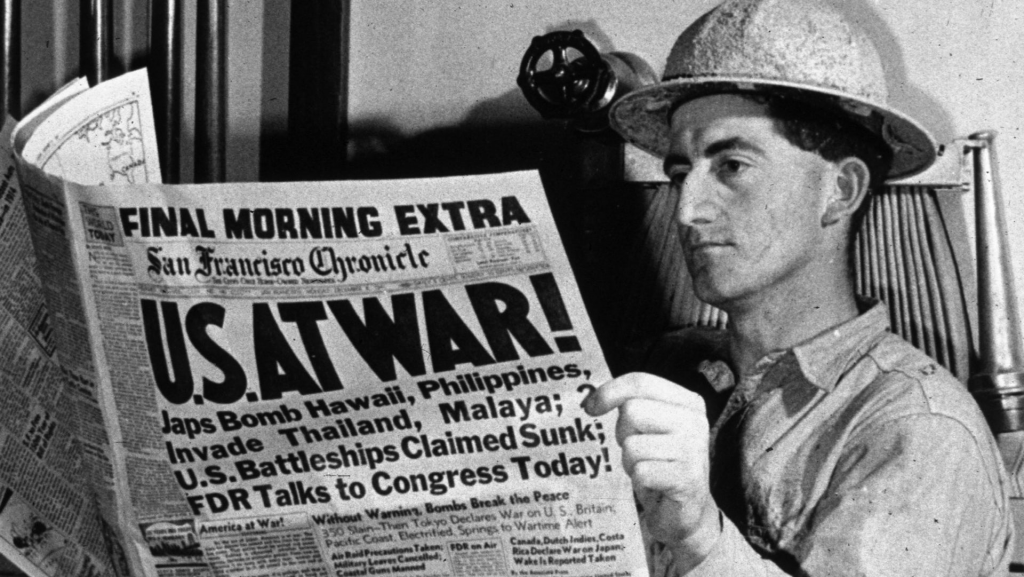When President James Madison stood before Congress on June 1, 1812, he delivered a powerful message: war with Britain was inevitable. Frustrated by years of British interference with American trade and their impressment of American sailors, the United States had exhausted all diplomatic avenues. On June 4, the House of Representatives overwhelmingly approved a declaration of war, followed by a more cautious Senate vote on June 18. And just like that, the War of 1812 began.
But hold on—was this really necessary? Many Americans at the time saw this as a “Second War of Independence,” even though Britain never actually challenged American sovereignty. In reality, this was a war that neither side really wanted, and today, it remains one of history’s most overlooked conflicts. If you polled Americans or Brits on the street, 99.9% wouldn’t even know it happened.
A War That Almost Didn’t Happen
Ironically, just a few days after Congress declared war, Britain had actually repealed the very policies that had provoked American outrage. On June 11, Britain agreed to lift its trade restrictions, removing one of the primary causes of the war. Unfortunately, in an era before telegraphs and the internet, this news took too long to reach Washington, and by the time it did, war had already begun. There was no turning back.

David vs. Goliath? Not Quite.
At first glance, the war looked like a fool’s errand for the United States. Britain boasted an army of 250,000 and a navy of over 900 ships. In contrast, the U.S. had a mere 10,000 troops and a navy of only 16 ships. So why would America, so clearly outmatched, declare war? The answer lies in timing and strategy. Britain was already engaged in a much larger conflict—the Napoleonic Wars. With Napoleon’s massive invasion of Russia underway, Britain was too distracted to send its full military force across the Atlantic. The U.S. saw this as an opportunity to strike while Britain was stretched thin, particularly in Canada, where the British military presence was weak.
A War for Expansion?
While Britain’s maritime policies were the official reason for war, many historians argue that territorial expansion played a key role. The United States had long pursued a policy of westward expansion, but Britain and its Indigenous allies stood in the way. President Madison’s war message even referred to Native American resistance as one of the major justifications for conflict. The British had been supporting Indigenous groups in the American frontier, arming them and encouraging resistance against U.S. settlers. This enraged American expansionists, who saw Britain as an obstacle to their Manifest Destiny.
The Rise of Tecumseh and Native Resistance
One of the war’s most remarkable figures was Tecumseh, a Shawnee leader who sought to unite Native American tribes into a powerful confederation. Unlike other Native leaders, Tecumseh realized that individual tribes had little chance against U.S. expansion. By forming a united front, he hoped to create a permanent Indigenous nation in the American frontier. His efforts alarmed American officials, particularly William Henry Harrison, the governor of Indiana Territory.
Harrison, a veteran Indian fighter, saw Tecumseh’s movement as a direct threat. In 1811, he led an attack on Prophetstown, the Shawnee stronghold, in what became the Battle of Tippecanoe. Though not a decisive victory, it weakened Tecumseh’s alliance. When war broke out in 1812, Tecumseh sided with the British, hoping to stop American encroachment once and for all.
Was It Worth It?
The War of 1812 was a strange conflict with no clear winner. The Treaty of Ghent, signed in 1814, essentially restored everything to how it was before the war. The territorial disputes remained unresolved, and Britain didn’t make any major concessions. However, the war had a profound psychological impact on the U.S. It gave Americans a sense of national identity and pride, particularly after the defense of Baltimore and Andrew Jackson’s stunning victory at New Orleans.
Meanwhile, Native Americans were the war’s biggest losers. Tecumseh was killed in battle in 1813, and his dream of a united Indigenous resistance collapsed. The war accelerated U.S. expansion into Native lands, setting the stage for further conflicts and displacement.
The War’s Legacy
Though often forgotten, the War of 1812 shaped America’s future in ways that still resonate today. It reinforced the country’s aggressive expansionist policies and deepened divisions between Native American tribes and the U.S. government. It also marked the last time Britain and the U.S. would be enemies—after this war, their relationship steadily improved, eventually leading to one of the strongest alliances in modern history.
Perhaps the greatest irony of all? The war that started because of maritime disputes didn’t even resolve them. Britain’s interference with American ships stopped not because of the war, but because the Napoleonic Wars ended. In the grand scheme of history, the War of 1812 might not have changed the world—but it certainly changed America.

No comments yet.